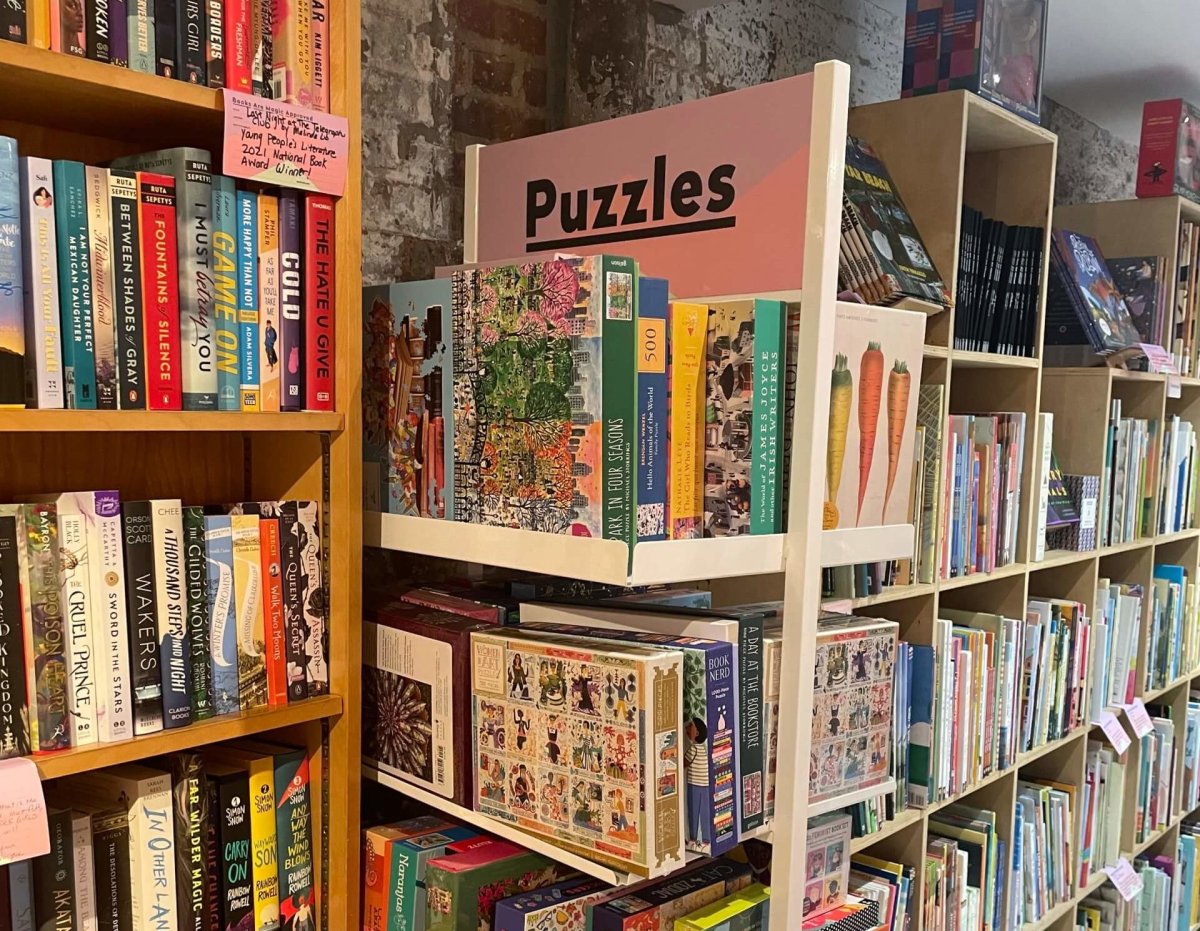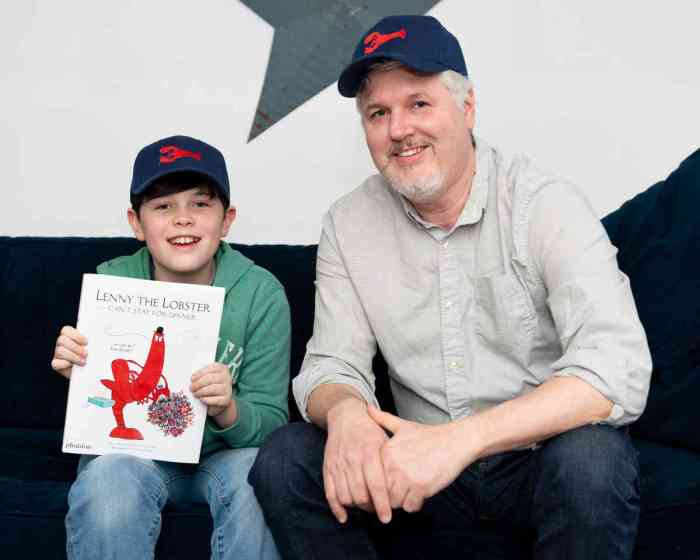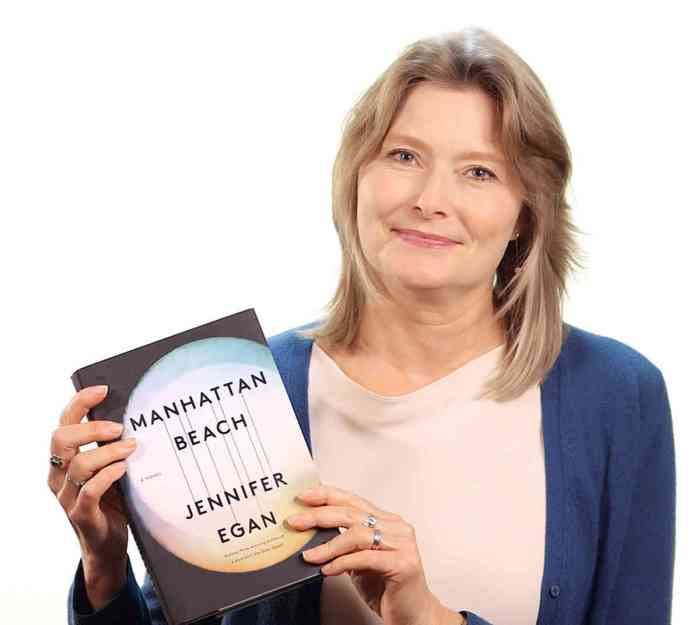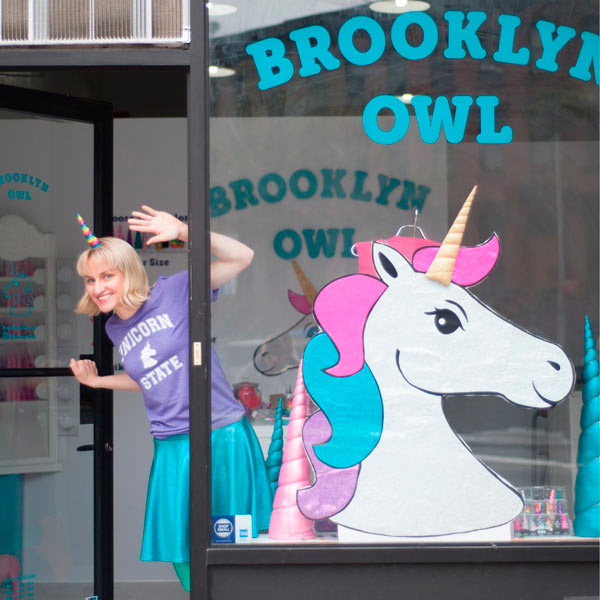Many 2021 headlines proclaimed a spike in the popularity of puzzles brought about by COVID-19 lockdowns as New Yorkers sought to fill their hours at home. As Brooklyn residents return to work, puzzles may again seem like a forgotten activity. But local bookstores are seeing the opposite.
Erin Ruggeri has worked at The BookMark Shoppe in Bay Ridge for several years.
She’s seen trends come and go, and remembers the spike in puzzle sales in 2020, as New Yorkers hunkered down during quarantine and games flew off her bookstore’s shelves. The sales were “neck and neck with books,” she said, but now that pandemic-related restrictions are lifting, their popularity remains about the same.
While the sales themselves have dropped, Ruggeri told Brooklyn Paper that — for the first time in her career — puzzle sales are “more all year round than just Christmas.”
Sales increased from $2.2 billion in 2019 to $3.34 billion in 2021, according to consumer data site Statista. But, instead of dropping, sales are projected to grow 6.25 percent annually until 2026.
“We always congratulate each other when we have good ideas,” Ruggeri said about herself and BookMark owner Christine Freglette. “She had said something about, ‘Well, remember when you brought all the puzzles in?’ And I had completely forgotten it was me.”
In 2020 when The BookMark Shoppe started to field more calls asking for puzzles, Ruggeri suggested stocking up. They filled the front window of The BookMark Shoppe with a selection of colorful puzzles.
Customers would come to the window, point to the one they wanted, and hand over their cash or card. Staff would take the credit card, run it inside to the register, then run it back out and hand the card and the selected game to the customer.
“We [were] getting more activity with puzzles,” Ruggeri said. “Like, ‘Is there something I can be doing at home with the kids, I pulled my kids out of school,’ or, ‘My business just shut down so I’m home by myself and working from home — I need something to do in my down time.’”
While “it’s definitely not the same numbers” as during the height of COVID-19, puzzle sales are still more regular now than in pre-COVID years.
“I do think it’s because the dynamic of how families spend time together has changed slightly too,” Ruggeri said.
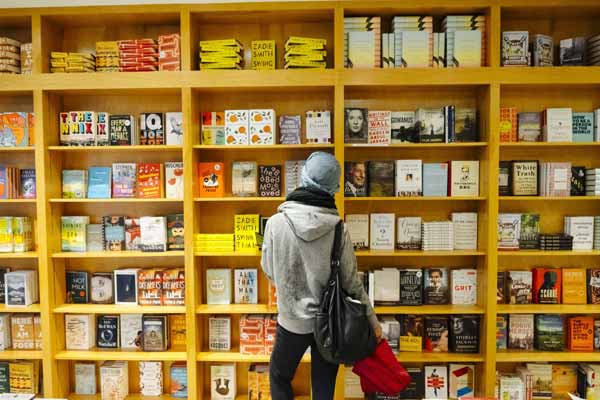
With families spending more time together during lockdown, Ruggeri said many family activities then catered to whatever the youngest family member was able to do. For example, a family with young children likely chose to do a puzzle or play Candy Land as opposed to playing Risk.
“It used to be say around Christmas we get a high hit with the puzzles,” Ruggeri said. “Now, you do get it where [kids are] coming in and buying it for their friend[’s] birthday. ‘Oh, she really likes puzzles’ — you would never hear that about a 14 or 15 or 16-year-old three years ago. But now you get that.”
Ruggeri said puzzles were a way to “[keep] kids focused on something else that may not be a negative” while parents listened to the news, but that the habit has stuck. She said the impacts of COVID-19 have brought on “a new generation of puzzle-lovers.”
“You see it where it’s an option now for a younger generation,” Ruggeri said. “Where I think prior to COVID, puzzles were old-people stuff.”
Nick Buzanski, General Manager of Books Are Magic in Cobble Hill, said not only are their puzzle sales up post-lockdown — book sales are on the upswing too.
Like Ruggeri, Buzanski said the increased interest in at home activities has risen especially in young adults, noticing a greater population of 20- and 30-year-olds purchasing jigsaws, and that puzzles today “make good gifts.”
Puzzle sales alone at Books Are Magic have surprisingly risen to approximately 25 percent above pre-COVID-19 sales, according to Buzanski.
“I feel like these are two activities people explored as the shutdown happened because they got sick of their screens.” Buzanski said. “They had to do zoom for work and they were always on a screen, so they really looked for non-digital outlets. I feel like books and puzzles have done really well because of that.”


